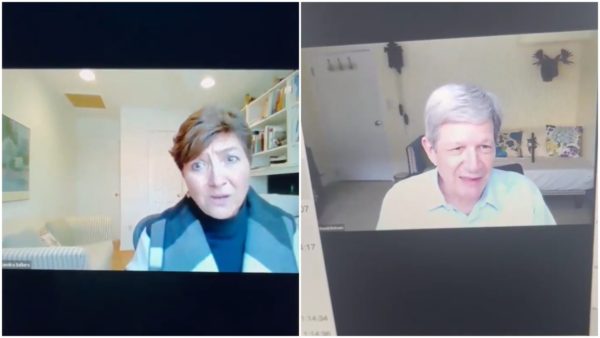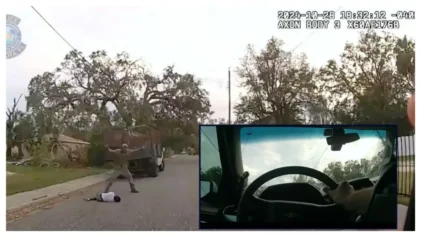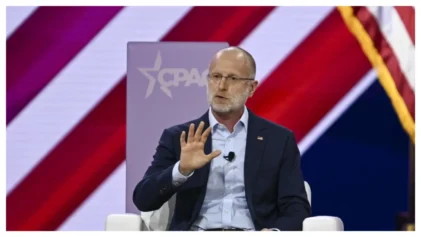A Georgetown University professor has been fired after she made what are being called racist remarks about Black students during a recorded Zoom call.
Georgetown Law Dean Bill Treanor announced on March 11 that professor Sandra Sellers was terminated from her position one day after a video of the Zoom call conversation was posted to Twitter.
“I informed Professor Sellers that I was terminating her relationship with Georgetown Law effective immediately,” Treanor said in the statement, News 4 Washington reported.

During a conversation about student performance between Sellers and professor David Batson, both of whom are white, Sellers explained that she feels “angst” because “a lot of my lower ones are Blacks.” The call was recorded by a student who shared the video to social media.
“I hate to say this — I end up having this, you know, angst every semester — that a lot of my lower ones are Blacks. Happens almost every semester,” Sellers said.
“Mmm hmm,” Batson responded, nodding.
“And it’s like, oh, come on,” Sellers explained. “Get some really good ones, but there are also usually some that are just plain at the bottom. It drives me crazy.”
“Yeah,” Batson said.
“So, I feel bad,” Sellers added.
“What drives me crazy is, you know, the concept of how that plays out. And whether that is, you know, my own perceptions playing in here and when certain, my own, you know, my own unconscious biases, you know, playing out in the scheme of things,” Batson responded. He has been placed on administrative leave pending an investigation by the Office of Diversity, Equity and Affirmative Action.
“I am appalled that two members of our faculty engaged in a conversation that included reprehensible statements concerning the evaluation of Black students,” Treanor said in response to the conversation.
He said he spoke with Sellers, who told him she planned to resign, but that he ultimately made the decision to terminate her.
The Georgetown University Law Center Black Students Association said Sellers thought she was on a private call, and called for her immediate termination. The association collected more than 2,000 signatures through a petition.
“These racist statements reveal not only Sellers’ beliefs about Black students in her classes, but also how her racist thoughts have translated to racist actions. Professor Sellers’s bias has impacted the grades of Black students in her classes historically, in her own words,” the statement said.
Maxine Walters, the president of the group, called for a review of grading to see if there is unconscious or conscious bias, and called on the school to commit to hiring more Black professors.
In a resignation letter to News 4 Washington, Sellers wrote that she “would never do anything to intentionally hurt my students or Georgetown Law,” adding that wishes she could “take back” her words.
Treanor said the university’s efforts aimed at addressing structural racism are not over. “This is by no means the end of our work to address the many structural issues of racism reflected in this painful incident, including explicit and implicit bias, bystander responsibility, and the need for more comprehensive anti-bias training,” he wrote.


